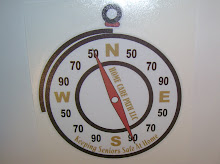In challenging budgetary times, expect publicly (Medicare, Medicaid) funded home health services to be tightly constrained. Expect home health agencies to provide as evidence for being good stewards of public money company policies that closely adhere to tight service guidelines. To the community this may appear to be reduced time per household and a faster discharge from service.
Home health agencies typically serve the acute needs of a population. The home health visit is usually a defined period of time with the focus on a specific task. An example would be a nurse coming to do dressing changes till the open skin has closed and is intact. The home health agency will require some basic things to serve the senior.
1. An order from a medical doctor
2. A valid pay source (private insurance, Medicare, Medicaid)
3. The patient must be unable to leave the home (homebound status)
4. The medical need must be improving (demonstrate progress)
With budget constraints the need for the patient to be home bound can be followed completely. So, if the senior can get out for church or to go to the food pantry, they are not completely homebound. The home health agency could discharge the senior with instructions to have the needs met with clinic visits. Remember in times of budget constraints anticipate the home health agency may adhere tightly to the above guidelines.
The senior may have several needs that have been determined to be related to a chronic medical condition. Chronic conditions tend to be ongoing and not corrected in a few home health agency visits. Often the home health agency will instruct the family to have the seniors needs met by an organization that can provide a custodial type care, a personal care maintenance service. Home Care Path www.homecarepath.com provides a service to meet the chronic needs of seniors who choose to live at home.
Home Care Path accepts private pay from the family (2011 rates are 20.00 per hour) for helping the senior with meals, bathing, dressing, shopping, medication reminders, scheduled toileting, pet care and more. Because Home Care Path is not reimbursed by Medicare or Medicaid funds, staff can serve the senior at the same time the home health agency is coming in. Having both the home health agency and Home Care Path help the senior is acceptable because only the home health agency is reimbursed through public funds. There is not a duplication of service.
Once the home health agency has met the acute need of the senior, discharge occurs. Because the case manager for the home health agency is telling the senior the needs have been met it could be a conflict of interest to encourage the family to start to privately pay for additional service. The home health agency has met the need, adhering to the guideline, the senior is discharged from service.
Yet the family may recognize the senior has needs that are not being met. Simple things like eating regular meals daily. Discarding expired food. Changing the cat litter box. Bathing and wearing freshly laundered clothes. Taking medication as provider ordered. Organizing and reading mail. Getting shoes on. Doing laundry. Getting grocery shopping and errands done. Home Care Path can come in to the seniors home and help with these needs.
As the budget constraints begin to change the service in the communities Home Care Path encourages seniors to explore strategies to meet ongoing needs.
Sunday, July 3, 2011
Subscribe to:
Post Comments (Atom)

No comments:
Post a Comment